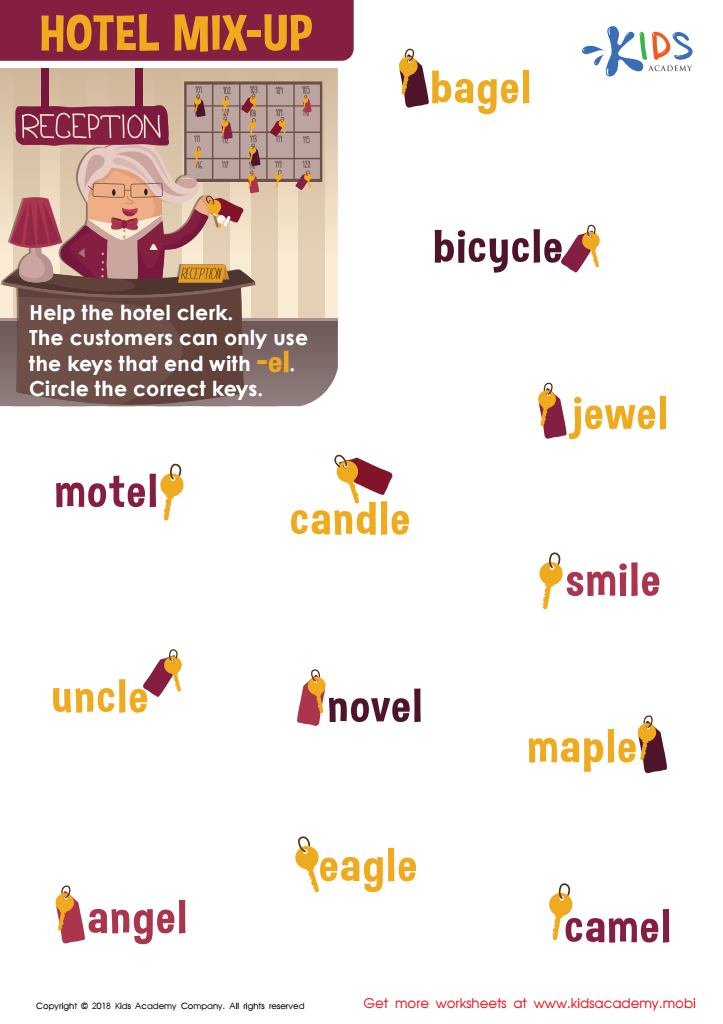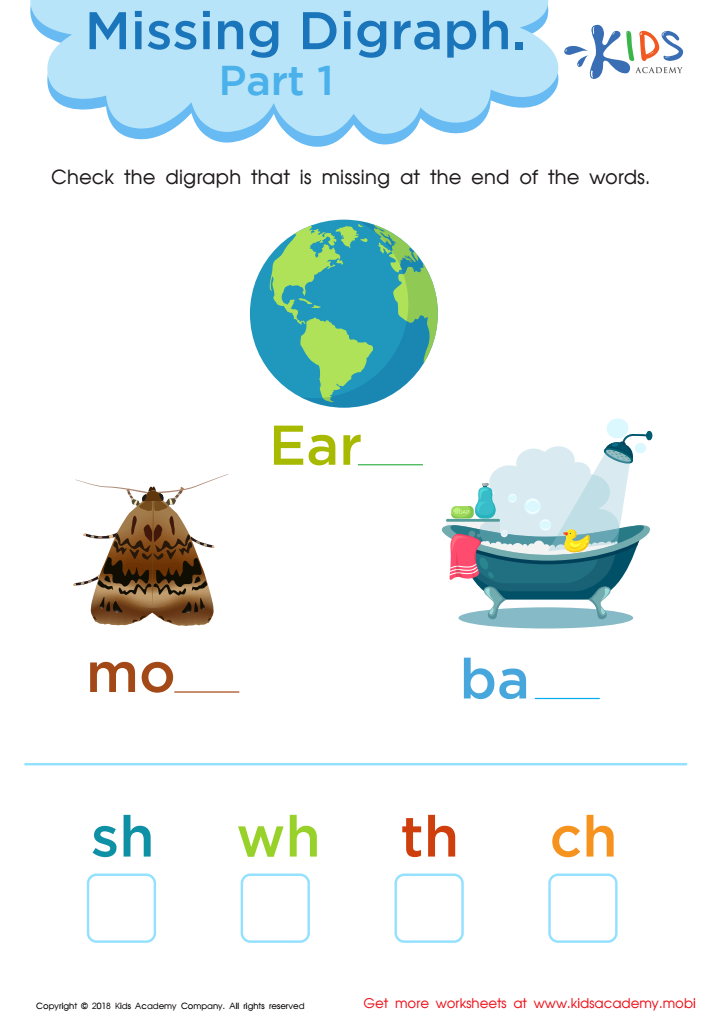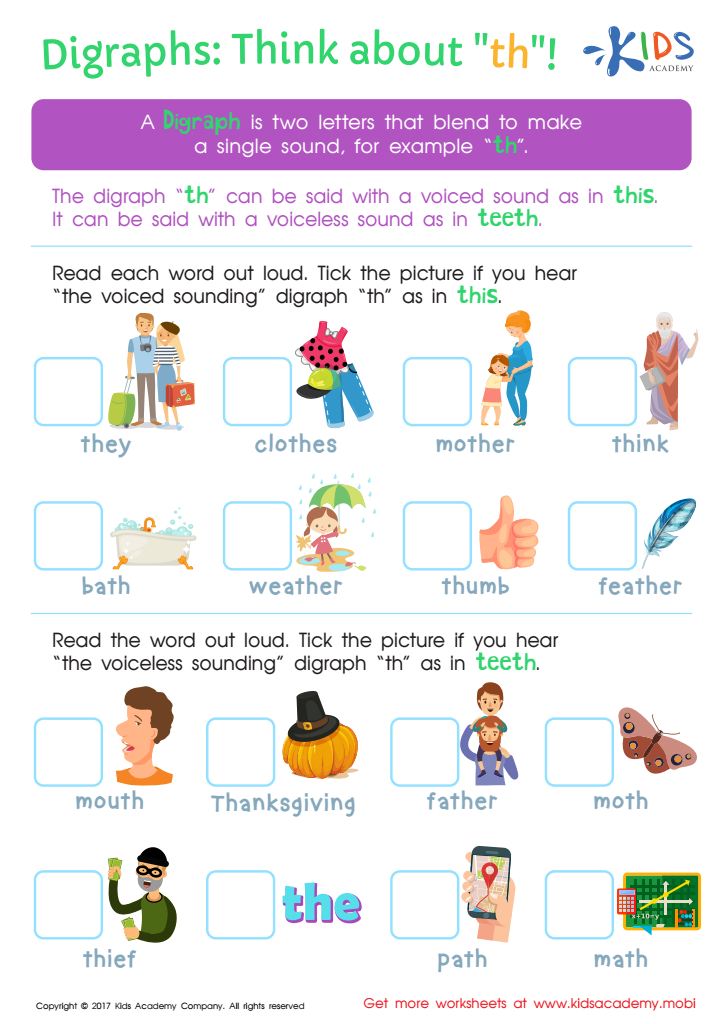Normal Ending Sounds Worksheets for Ages 6-9
4 filtered results
-
From - To
Our "Normal Ending Sounds Worksheets for Ages 6-9" are specially designed to enhance phonemic awareness and literacy skills in young learners. These engaging worksheets help children identify, differentiate, and accurately use common ending sounds in words. Each activity features fun and interactive exercises, such as matching, coloring, and word association, to retain attention while making learning enjoyable. Perfect for both classroom and home use, these worksheets will fortify your child’s reading and pronunciation abilities, making the journey of learning phonics effective and entertaining. Help your child master ending sounds with our comprehensive and creative resources!


Hotel Mix-up Worksheet


Missing Digraph: Part 1 Worksheet


Twin Onset Worksheet


Digraphs: Think About "th" Worksheet
Normal ending sounds refer to the final sounds or phonemes in words, such as the "t" in "cat" or the "d" in "bed." Recognizing and understanding these sounds is crucial for kids aged 6-9 because it directly impacts their reading and spelling skills.
Firstly, mastering ending sounds helps with phonemic awareness, which is the ability to hear, identify, and manipulate individual sounds in words. This essential skill allows children to decode new words when reading and encode words when writing. For example, understanding that the word "bat" and "pat" end differently despite starting similarly helps fine-tune their reading abilities.
Secondly, correct identification of ending sounds reinforces proper word formation and usage in writing. It helps children avoid common spelling errors, allowing them to become more confident writers. As they spell more accurately, their written communication becomes clearer, which is particularly beneficial for transferring thoughts onto paper, completing assignments, and taking tests.
Lastly, focusing on ending sounds also boosts vocabulary. As children learn to differentiate between similar-sounding words, they naturally expand their word banks, aiding both in comprehension and expression. Therefore, parents and teachers should pay attention to ending sounds to support a child's overall literacy, paving the way for academic success and effective communication.

 Assign to the classroom
Assign to the classroom









